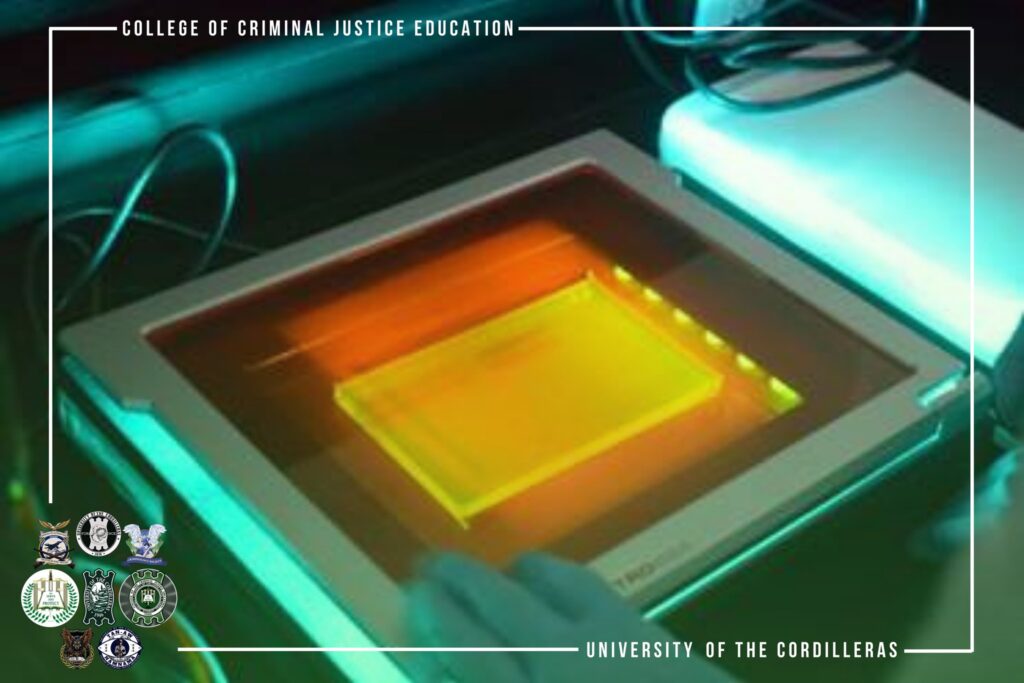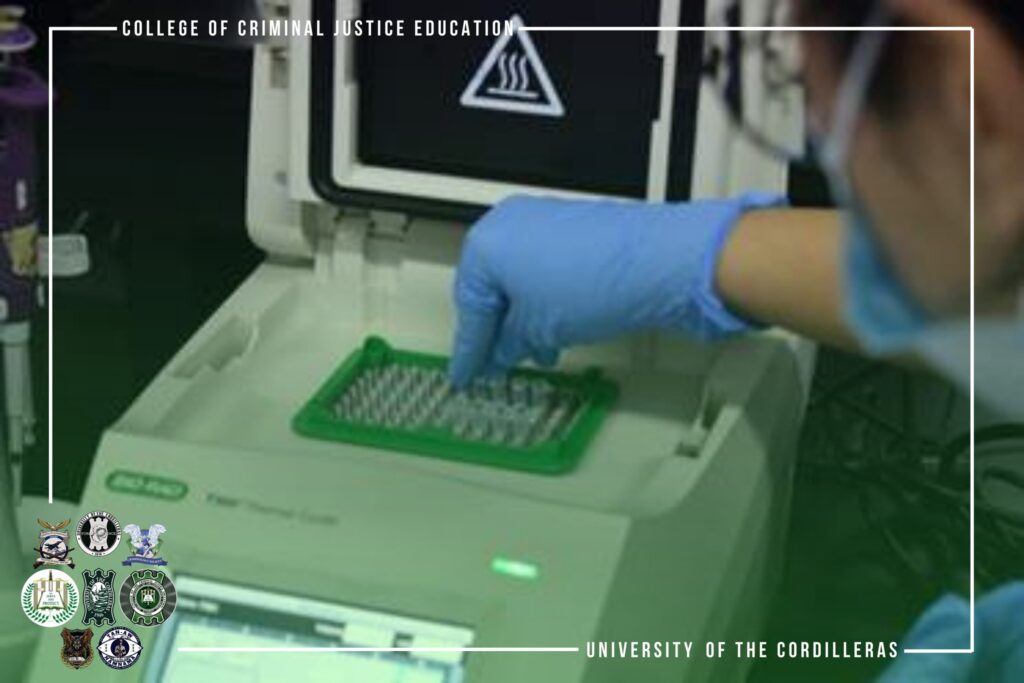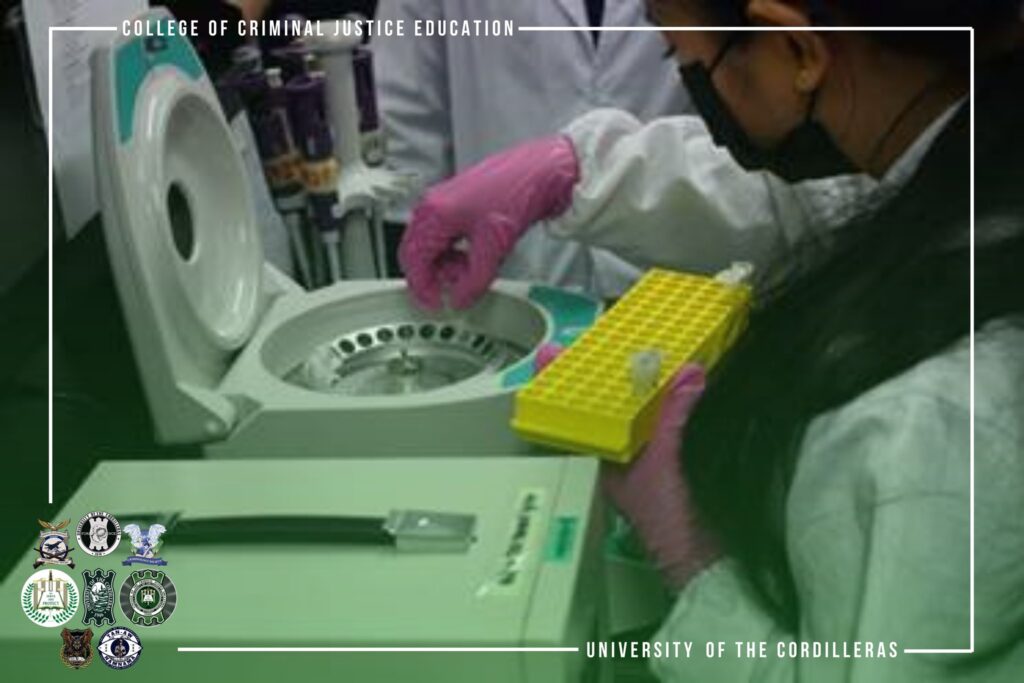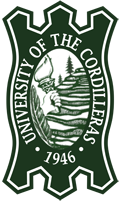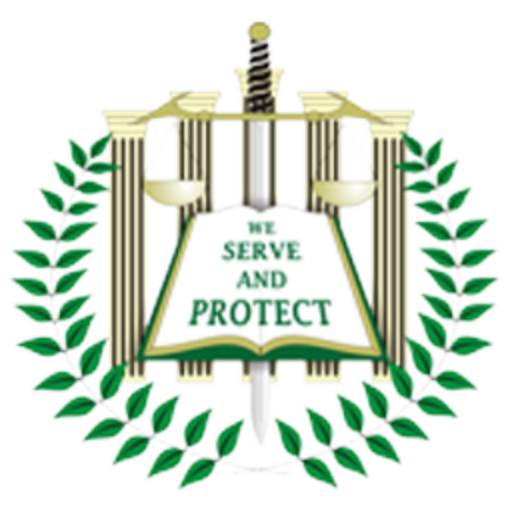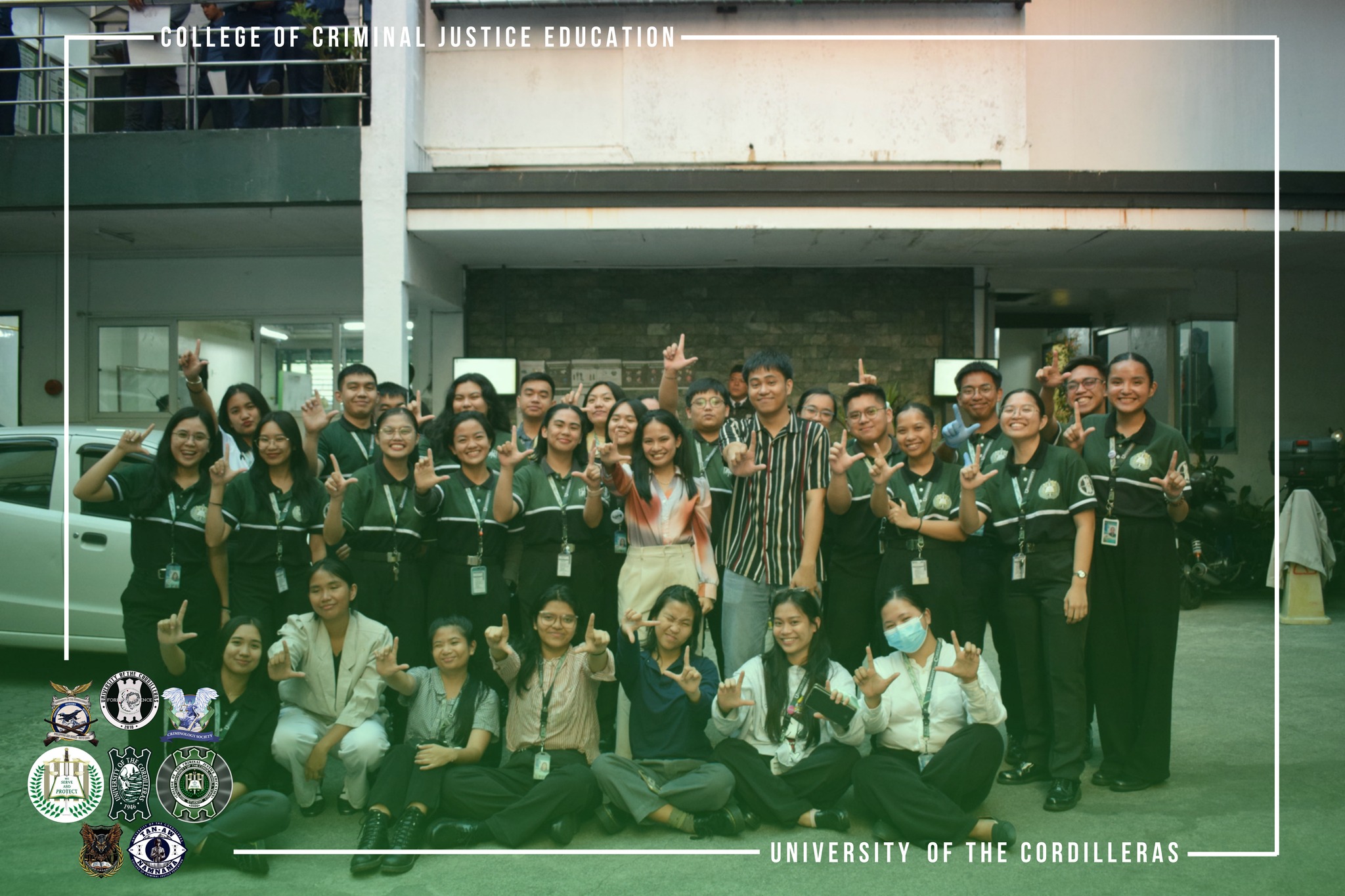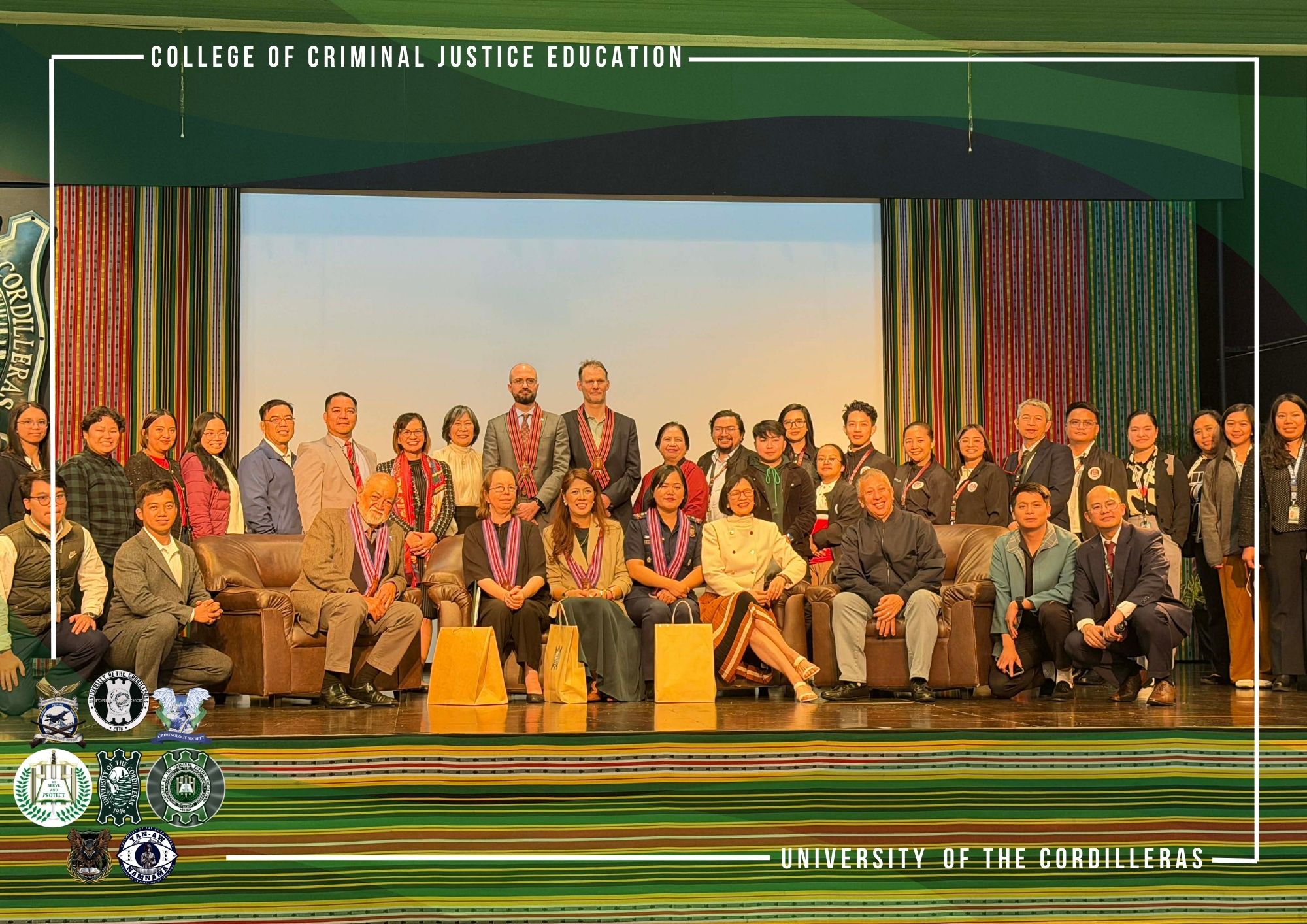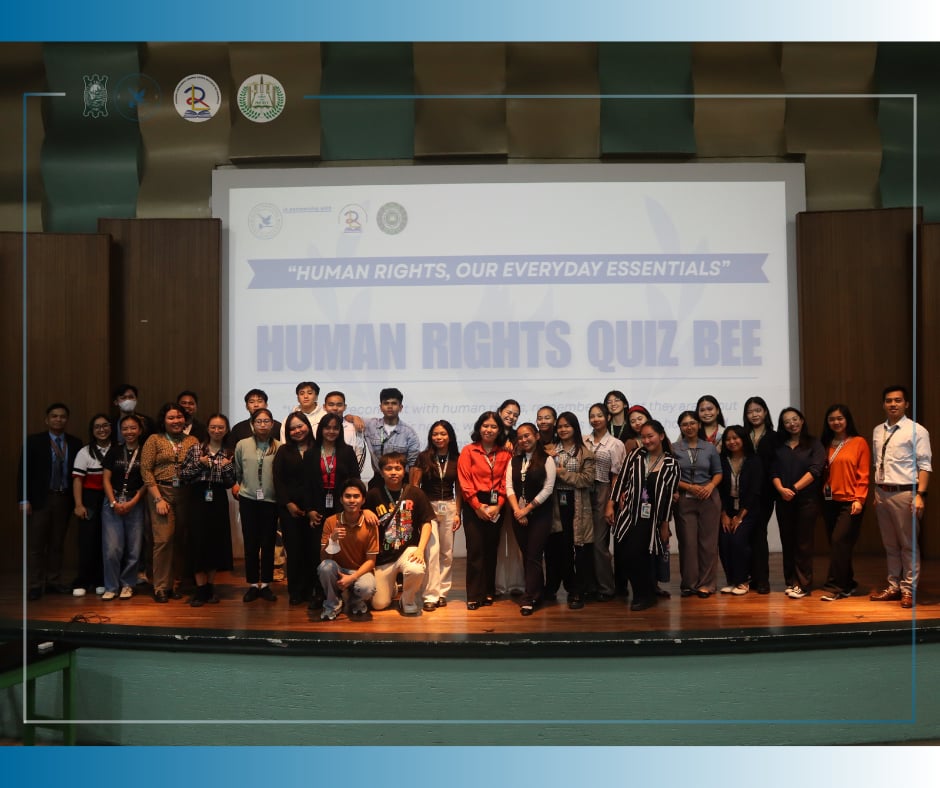Article by: Isabela Louise A. Quilang
Narrative Report by: Forensic 16 – BFS 3A (Batch 1)
On April 3–4, 2025, third-year Forensic Science students of the University of the Cordilleras took part in a two-day intensive workshop on DNA profiling and Polymerase Chain Reaction (PCR) techniques at the Forensic DNA Laboratory in UC Legarda Campus. The training was facilitated by Mr. Rogel Victor Mendoza, a specialist from the Institute of Biology at the University of the Philippines–Diliman, who guided students through lectures and practical applications.
The workshop opened with an introductory lecture on Wildlife Forensics and DNA profiling before the students were divided into groups and batches for laboratory sessions. Under the supervision of Mr. Mendoza, participants extracted DNA samples from fish, chicken, and human buccal swabs. They then applied PCR amplification and analyzed their results using agarose gel electrophoresis, with DNA bands visualized under a UV transilluminator.
While students successfully carried out most procedures, they also encountered challenges, such as mismatched primers and weak gel visualization that led to faint or undetectable DNA bands. These difficulties underscored the importance of precision, proper material selection, and adherence to rigorous scientific protocols. Despite setbacks, the cadets demonstrated adaptability and improved their problem-solving skills, reinforcing the critical role of accuracy in forensic DNA analysis.
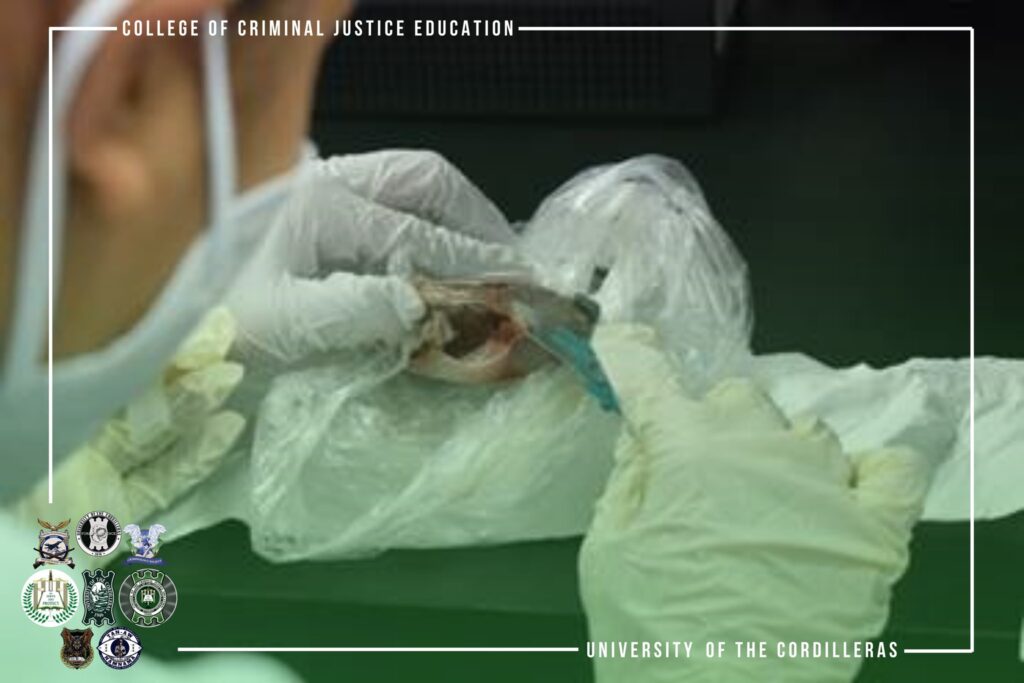
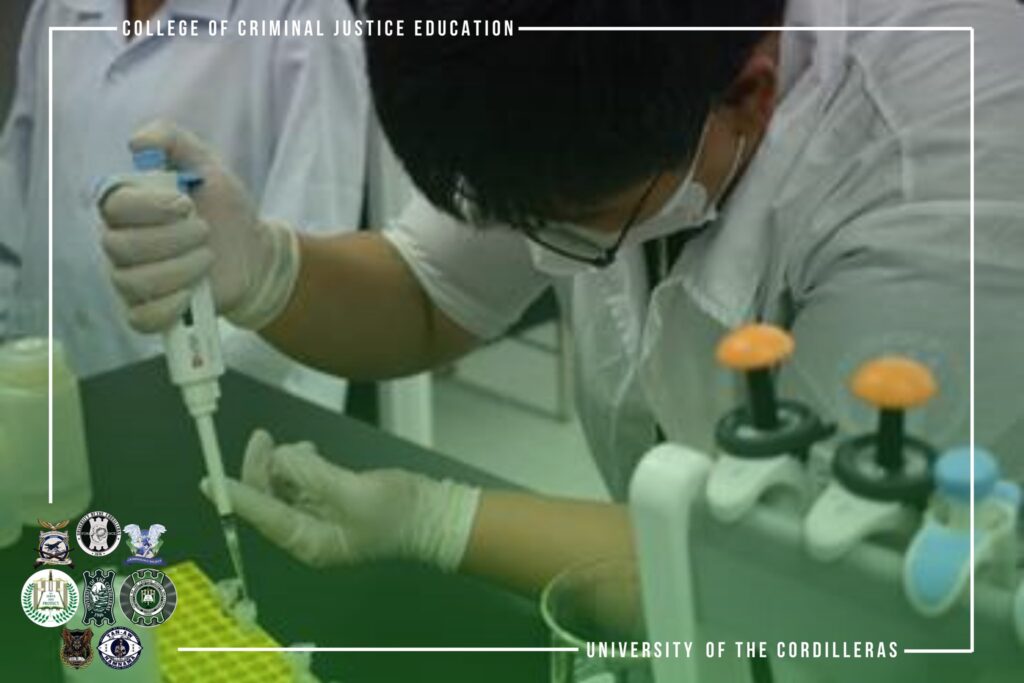
The training concluded with a post-laboratory discussion on DNA barcoding and the factors influencing PCR results. Mr. Mendoza provided expert insights, broadening the students’ perspectives on career opportunities in both forensic and biological sciences.
This workshop strongly reflects the United Nations’ Sustainable Development Goal 4: Quality Education, as it equipped UC students with experiential learning that goes beyond classroom instruction. By engaging directly with advanced laboratory techniques, participants not only strengthened their technical competence but also developed analytical thinking and resilience—qualities essential for future forensic scientists committed to truth and justice.
